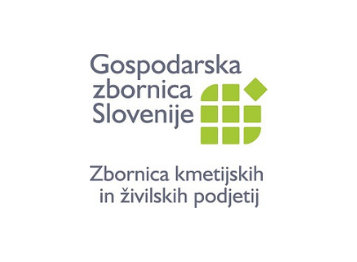
In 2015, the Slovenian Chamber of Commerce – Chamber of Agricultural and Food Enterprises (CCIS-CAFE) launched a project of industry self-regulation called “Zaveza odgovornosti” (en. Commitment to responsibility), when 11 companies from the soft drink sector wanted to contribute to the goals of the national food policy strategy. Companies co-signed a document with commitments on five key areas (no advertising to children under the age of 12, responsible behaviour in schools-elementary and secondary, front of pack nutrition labelling, new food product development and reformulation – low energy, low/no added sugar and promotion of healthy lifestyle).
In July 2017, PREŽIVI program was launched by CCIS-CAFE (Promotion of food reformulation and development of new food products of improved composition among food business operators in Slovenia). The program is financed by the Slovenian Ministry of Health and will last until December 2019. The project partner is the National Institute of Public Health. The main aim of the program is to promote reformulation and development of new food products with improved nutritional composition (less sugar, salt, fats and more dietary fibre, vitamins and minerals) and to inform consumers about the offer of reformulated products on the Slovenian market.

In November 2017, dairy companies signed a self-regulatory document, committing themselves to promote products with better nutritional composition especially dairy products with less added sugar and to reduce the amount of added sugar in their products of 10% by 2020.
On 16 of October 2019, World Food Day, 8 companies from the bakery sector also co-signed the self-regulatory document and committed to the reduction of added salt in bakery products of 5% by 2022. For this purpose, they will develop and improve the composition of existing food products and search for additional ways to reduce the content of added salt in bread. On the other hand, the companies will also expand the range of bakery products with a higher content of whole grain ingredients and help to achieve one of the key strategic goals of Nutrition Strategy of Ministry of Health.
The achievements of food industry self-regulatory commitments are monitored by a special Committee for monitoring the implementation of industry self-regulatory commitments. Committee representatives are from different governmental bodies and ministries – Ministry of Agriculture, Forestry and Food, Ministry of Health, Ministry of Economic Development and Technology, Ministry of Education, Science and Sport, National Institute of Public Health and CCIS-CAFE.
The results show that food companies are expanding the range of food products with improved nutritional composition. With this purpose CCIS-CAFE launched a Catalog of food products with improved composition (less sugar, salt, fats and more dietary fibers, vitamins and mineral). The Catalog reflects the contribution of food industry to changes in the eating habits of the Slovenian population. The Catalog includes 143 food products (from 25 Slovenian food companies) with improved nutritional composition that are already available to consumers.

The increasing number of food products with improved nutritional composition also shows that the sectorial self- commitments are already spreading among whole food industry. The food industry is also working on other commitments in the area of nutrition, packaging, sustainability and others.
More information about the “Zaveza odgovornosti” project can be found here and here.
About CCIS-CAFE.


